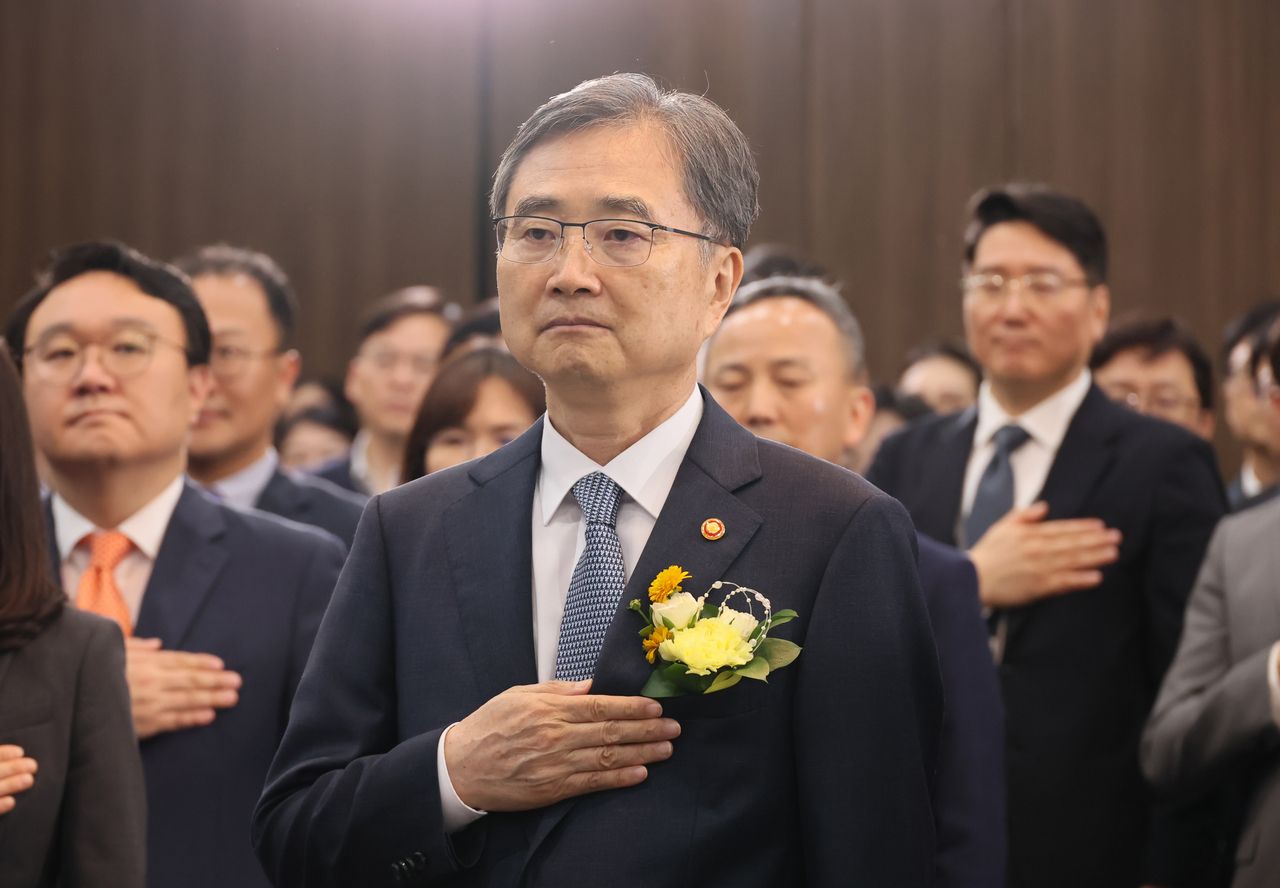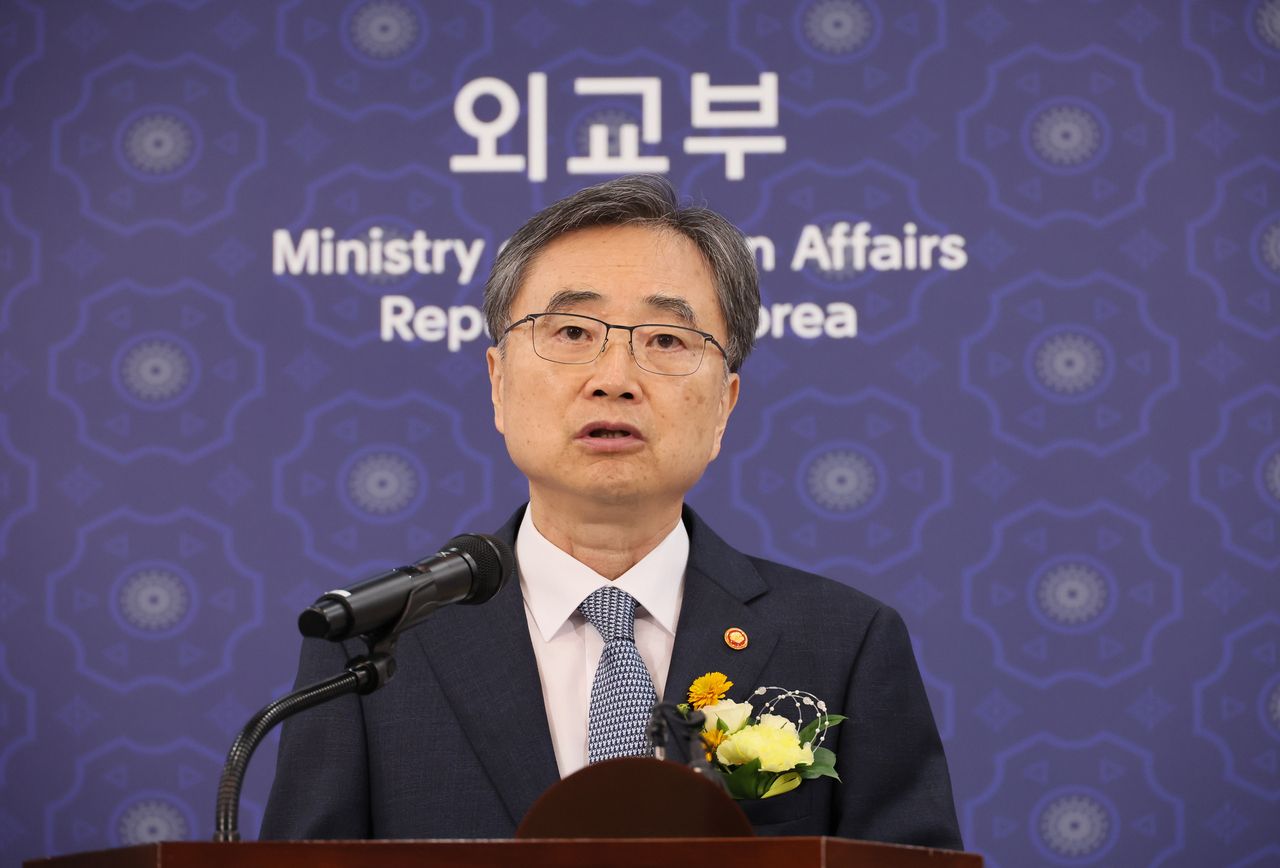 South Korea’s new Foreign Minister, Cho Hyun, has made achieving peace on the Korean Peninsula his top priority. He aims to accomplish this through renewed inter-Korean dialogue, working in close coordination with the United States amidst a volatile geopolitical landscape.
South Korea’s new Foreign Minister, Cho Hyun, has made achieving peace on the Korean Peninsula his top priority. He aims to accomplish this through renewed inter-Korean dialogue, working in close coordination with the United States amidst a volatile geopolitical landscape.
As the inaugural top diplomat under the Lee Jae Myung administration, Cho began his tenure with a public apology for the Foreign Ministry’s conduct during the previous Yoon Suk Yeol government. He criticized its diplomatic approach as being driven by “domestic political motives” and characterized by “binary thinking.”
“We must objectively assess the rapidly evolving dynamics of international politics and implement pragmatic diplomacy that prioritizes our national interests,” Cho declared on Monday in his inaugural address, delivered in Korean.
“In these times of heightened geopolitical instability and tension, establishing peace on the Korean Peninsula is our foremost objective.”
Cho emphasized that “South Korea must work to de-escalate tensions on the Korean Peninsula and pave the way for dialogue with North Korea, in close collaboration with the United States.”
“Through a gradual and pragmatic approach, we must make tangible progress in achieving peace on the Korean Peninsula and addressing the North Korean nuclear issue,” Cho added.
Top diplomat rebukes Yoon’s legacy
Cho initiated his inaugural speech with a pointed critique of the Yoon administration’s diplomatic efforts. He underscored the growing significance of the foreign minister’s role in light of Seoul’s increasingly complex diplomatic and security environment, as well as the rapidly shifting global order.
“We must pursue strategic and pragmatic diplomacy, placing our national interests at the forefront and grounding our approach in rationality, moderation, and efficiency – especially in these challenging times. Bipartisan support from Congress is also crucial,” Cho stated.
He noted that in recent years, diplomacy has at times strayed from pragmatism and the pursuit of national interests.
“Diplomatic issues were often exploited for domestic political gain, and many areas of diplomacy that should have been guided by pragmatism and national interests were instead approached in binary terms.”
 In his inaugural address, Cho listed several examples of diplomatic missteps under the Yoon administration.
In his inaugural address, Cho listed several examples of diplomatic missteps under the Yoon administration.
“There were also inappropriate comments made about foreign countries. Even when our chances of winning the Expo bid had significantly diminished, we persisted until the very end,” Cho remarked.
“The Foreign Ministry’s lawsuit against MBC was clearly misguided. On behalf of the Foreign Ministry, I extend an apology to MBC,” Cho added.
The Foreign Ministry had filed a lawsuit against local broadcaster MBC in December 2022 over its coverage of a hot mic incident involving then-President Yoon. The broadcast included subtitles suggesting Yoon had used offensive language to criticize the U.S. Congress during the UN General Assembly in September of that year.
Cho also criticized Yoon for declaring martial law on December 3, 2024, “in an attempt to undermine democracy shortly after hosting the Summit for Democracy” in March of the same year.
“On behalf of the Foreign Ministry, I sincerely apologize to the public for our failure to meet the people’s expectations throughout this entire process,” Cho stated.
Seeking a win-win, non-zero-sum approach with the U.S.
Prior to the inauguration ceremony, Cho addressed pressing issues, including tariff negotiations with Washington, during a brief interview at the Foreign Ministry building in Seoul.
When asked about his plans to visit the U.S., Cho responded, “We are in comprehensive discussions with our U.S. counterparts to determine the most suitable timing.”
“No decision has been made yet. I understand that ministers from other departments involved in various negotiations may also be traveling,” he added, indicating the need for inter-agency coordination.
Cho assumed office less than two weeks before the August 1 deadline for U.S. “reciprocal” tariffs on several countries, including South Korea, imposed by former President Donald Trump.
National Security Advisor Wi Sung-lac departed for the U.S. again on Sunday, just 11 days after returning from Washington on July 9, as part of efforts to secure a comprehensive deal with the U.S. covering issues ranging from tariffs to security.
Regarding the Foreign Ministry’s role in the comprehensive package deal, Cho emphasized that the ministry should strive for a “win-win solution with the United States.”
“The Foreign Ministry, which needs to consider the South Korea-U.S. alliance from a broader diplomatic perspective and work towards strengthening the future of the alliance, should take a more comprehensive view in examining all such package deals and offer its input,” Cho explained.
“Based on my negotiation experience, there’s always potential for a non-zero-sum, win-win proposal. The Foreign Ministry can facilitate this outcome.”










Most Commented